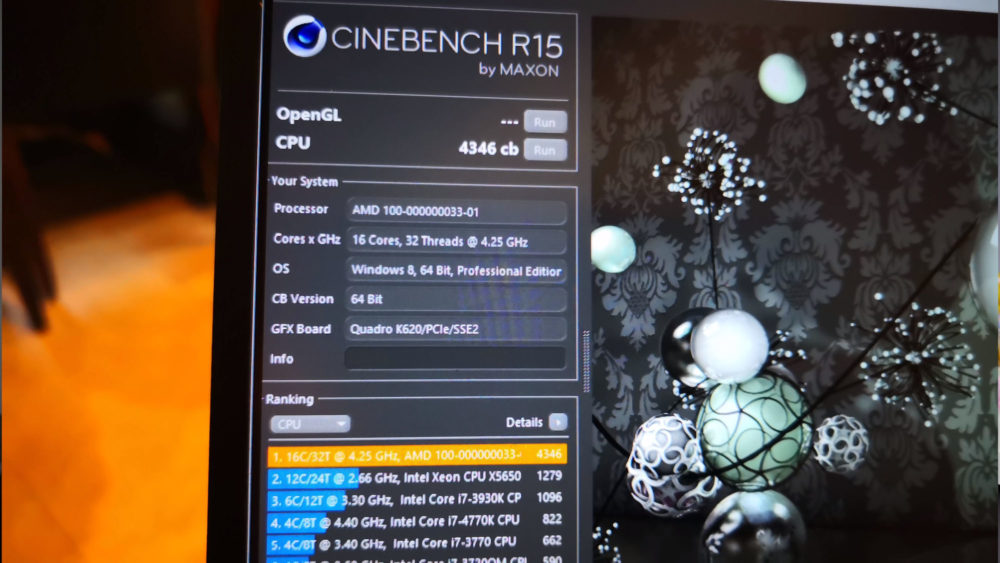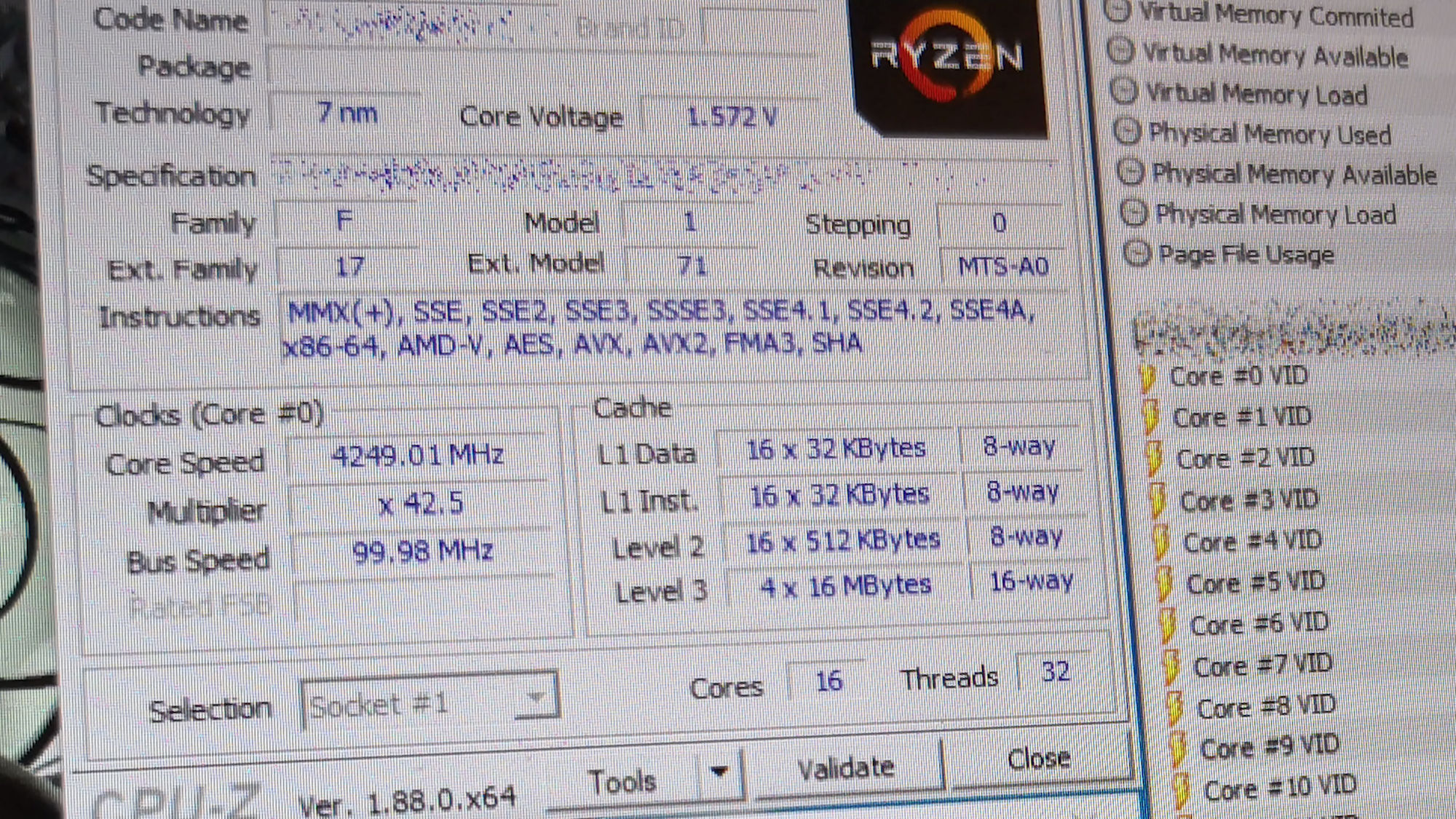Last night, AMD announced new 6, 8, and 12 core CPUs based on their 7nm Ryzen 3000 architecture. Contrary to speculation, AMD did not disclose any information on a 16 core cpu.
AMD demonstrated their 12-core AMD Ryzen 9 3900x is using 2x8 core CCX design, so it isn't crazy to imagine AMD would make a 16 core CPU with all cores enabled..
However, shortly after AMD's keynote, Aussie youtuber TechYesCity uploaded a video detailing an inside look at an upcoming 16 core Ryzen 3000 cpu.
This engineering sample 16 core, when overclocked, managed 4.25ghz @1.572v using water cooling. The 16 core/32 thread cpu managed a 4346cb in Cinebench R15. This score creams the 18 core i9 7980XE and 9980XE CPUs at stock frequencies, even though these i9 CPUs cost nearly $2000.
All Core i9 stock frequency Cinebench results are from https://www.overclock3d.net/reviews/cpu_mainboard/intel_core_i9_9980xe_18_core_cpu_review/6



TechYesCity's Video:
View: https://www.youtube.com/watch?v=MkO4R10WNUM&
AMD demonstrated their 12-core AMD Ryzen 9 3900x is using 2x8 core CCX design, so it isn't crazy to imagine AMD would make a 16 core CPU with all cores enabled..
However, shortly after AMD's keynote, Aussie youtuber TechYesCity uploaded a video detailing an inside look at an upcoming 16 core Ryzen 3000 cpu.
This engineering sample 16 core, when overclocked, managed 4.25ghz @1.572v using water cooling. The 16 core/32 thread cpu managed a 4346cb in Cinebench R15. This score creams the 18 core i9 7980XE and 9980XE CPUs at stock frequencies, even though these i9 CPUs cost nearly $2000.
| CPU | Base frequency | Maximum frequency | Cinebench R15 score |
| Intel Core i9 9980XE | 3.00GHZ | 4.4GHZ | 3646cb |
| Intel Core i9 7980XE | 2.6GHZ | 4.2GHZ | 3404cb |
| AMD Ryzen 3000 Series 16 core | 4.25GHZ | 4.25GHZ | 4346cb |



TechYesCity's Video:
Last edited:

